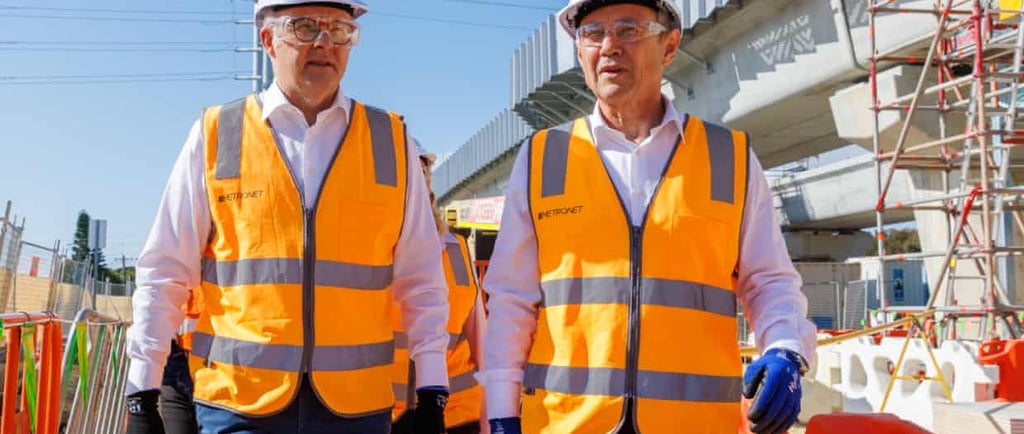Western Australia’s Environmental Reset: What’s Being Rolled Back and Why It Matters
A sharp look at how the WA government is dismantling key environmental protections from emissions rules to oversight authorities and why these changes threaten nature, climate goals, and public trust.
OPINION & VOICES


Western Australia is in the midst of a transformation. The kind that does not only shift policy but reshapes land, air, and accountability. Behind closed doors and under the cover of distant geography, significant environmental safeguards are being rolled back. And while many in WA may be aware, the rest of Australia risks watching this quietly, perhaps believing decisions here have little effect on national or global climate and ecological health. But they do.
This is not incremental reform. It is a bet — that voters won’t notice, that environmental groups won’t mount effective resistance, that federal laws or international concern won’t demand change. Let us look closely at what is changing, what the consequences may be, and why this moment calls for public attention and leadership.
What’s Being Rolled Back: The Evidence
Recent reporting and audits reveal a pattern of weakening in protections that were once considered foundational. Major industrial and resource projects are increasingly less constrained by state regulation on greenhouse gas emissions. WA has moved to deregulate emissions oversight for large projects, arguing that federal mechanisms such as the safeguard mechanism are sufficient. Critics say those federal tools remain too weak to ensure reductions or guard against increases. The Guardian+2The Guardian+2
Environmental Protection Authority (EPA) reforms are central to these roll-backs. The WA government has fast-tracked changes that allow stronger ministerial direction of the EPA’s priorities, reduced or removed appeals or oversight mechanisms, and opened up the EPA board to industry voice. These shifts threaten the independence and deliberative capacity of the agency. The Guardian+2CCWA+2
Nature-positive laws — a proposed suite of reforms aimed at strengthening protection for biodiversity, including new environmental compliance mechanisms, accountability tools, and integrated climate triggers — have been deferred, delayed, or softened. Legislative momentum nationally has stalled, in part due to resistance from WA’s political leadership and from industry sectors. The Guardian+2ABC+2
Additionally, ecological monitoring, protection of threatened ecological communities, and oversight of environmental assessment processes are under-resourced and deprioritized. An Auditor General’s report found that many threatened ecological communities are not being properly monitored; once damaged, recovery is unlikely. CCWA
Budgets, oversight, and regulatory teeth are being trimmed or reallocated. Projects once required to meet state emission standards or adhere to rigorous assessments are now encountering looser criteria or exemptions. In practice this means more projects proceeding under less stringent environmental review. The Guardian+2CCWA+2
Why this Matters: Stakes for Nature, Climate, and Society
What seems technical has very real impact. Environmental protections are not abstract; they regulate air quality, safeguard water sources, protect wildlife, prevent habitat loss, shield against climate change, and preserve places of cultural heritage. When oversight is weakened, risk rises — risk of irreversible species loss, ecosystem collapse, pollution, damage to human health, and reputational and legal liability.
Emission increases matter not only locally but globally. WA is one of the few parts of the country where emissions continue to rise. Without ambitious state policy on reductions and strong safeguards for large emitting projects, climate goals are harder to achieve. Loose regulation or deferment advantages industries now, but cumulative environmental cost is deferred — until pressed by disasters or public outcry. The Guardian+1
Indigenous heritage is also at risk. Extensions of projects such as the North West Shelf gas plant have raised concerns about emissions damaging heritage sites like Murujuga rock art. Industrial pollution, chemical emissions, and air quality all factor into whether heritage values can be preserved. The Guardian+1
Public trust and democratic legitimacy are also at stake. When environmental assessments are fast-tracked without public consultation, when watchdogs are reshaped to be more responsive to industry than ecology, people see decisions being made over their heads. That erodes confidence in government both locally and nationally.
Where Leadership Is Needed
Given the scale of these changes, the solution does not lie in more words but in renewed commitments and structures of accountability. States like WA need to affirm clear statutory emission targets, ensure environmental agencies have both independence and adequate resources, and restore robust public participation in decisions affecting nature. Federal authorities must not cede too much power to states if state laws are weakening protection.
Transparent data, regular audits, independent review bodies, empowered heritage protections, and stronger integration of climate science into assessment processes are essential. Civil society, communities, Indigenous custodians, industry and government all have roles to play — but good governance demands that environmental limits are not optional; they must be enforceable and integrated.
Final Thoughts
Western Australia is engaged in what is effectively a high-stakes experiment. The experiment asks: how far can environmental protection be pared back before consequences ripple outward — into climate goals unmet, ecosystems compromised, cultural heritage damaged, communities exposed? And whether the quietness of much of this change grants impunity or whether notice, resistance, and accountability will awaken.
At TMFS we believe environmental strength is not a cost but a foundation. Strong laws, independent oversight, protected ecological systems — these are not luxuries; they are prerequisites for sustainable prosperity. The notion that one region’s weakening of protections is someone else’s concern is a fallacy. What happens in WA echoes across Australia and beyond.
We call on policymakers, civil society, community leaders and all citizens to engage with what is being lost in plain sight. Monitor proposals, demand transparency, insist on accountability. Because preserving what remains is not only about nature: it is about collective resilience, intergenerational justice, and the kind of Australia we want to be.
All rights belong to their respective owners. This article contains references and insights based on publicly available information and sources. We do not claim ownership over any third-party content mentioned.


